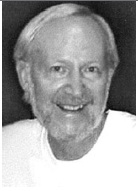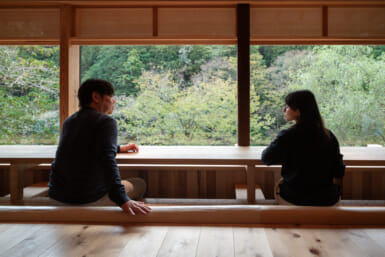‘Say not, I have found the truth, but rather, I have found a truth.’ — Kahlil Gibran
In London, when I was researching and writing a thesis about Buddhism and psychotherapy, I often gave talks to Buddhist groups about the parallels between some Buddhist teachings and psychotherapeutic concepts.
Usually, my comments were met with positive feedback, especially from Buddhist monks, but at other times a seminar was thrown into disarray when someone jumped up to disagree. I remember one person yelling at me, at a London University seminar, “How dare you compare the Buddha to psychotherapy!” The vehement protester was an Englishwoman, a member of a British-based Buddhist organization.
It was interesting although not surprising to me that some people hold psychotherapists in such low esteem, at least in comparison to the Buddha. Ironically, however, the Tibetan head of the Englishwoman’s organization and I often met for a good vegetarian meal to discuss the introduction of Buddhist teachings into the British school system’s multicultural religious education program.
At the time, I was chairman of the Network of Buddhist Organizations for the UK and, among other things, I helped advise non-Buddhist organizations on the Buddha’s teachings. My Tibetan monk friend agreed with my ideas of Buddha’s psychological insights which were discussed at some depth in his discourses with his monks some 2,500 years ago.
In fact, I often feel Buddha was the first psychotherapist, and he got there 25 centuries before Freud and lung even got their medical degrees. The actual turning point in Buddha’s search for enlightenment came when he was meditating under a tree near the village of Gaya in India. He overheard a musician telling his son to be careful about tuning a string instrument: “If you pull the strings too tightly, they will break. If they are too loose, you will not be able to play.”
This comment triggered Buddha’s development of the concept of the Middle Way or, in other words, approaching issues in moderation, so that you don’t go off the deep end in either direction. That sounds like good common sense advice from a chapter in a typical 21st century stress reduction manual.
It totally changed Buddha’s perception of how to approach the issue of enlightened awareness or consciousness. It became easier for him then to deal with the push-and-pull between the spiritual world of asceticism and the hypnotic trance weaved by materialistic life.
After achieving enlightenment in Gaya (now Bhodgaya), Buddha journeyed to the holy city of Benares (Varanasi) on the Ganges. In Varanasi one can hardly walk along the ghats by the river without bumping into all the saints and holy men/women in India.
Buddha meditated on these very ghats many centuries ago. It was also here I was initiated into an ancient yoga teaching and meditated by the Ganges in the pre- and early dawn light.
A short journey by a three-wheeled motor scooter taxi takes you to Sarnath, where Buddha gave his first discourse based on the Four Noble Truths. These truths and their explanation revolutionized the spiritual infrastructure of India at the time, and they continue to change the way many men and women think throughout the world — they also sound like an introductory course to psychotherapy and mental health training.
Noble Truth One: Life is dukka. Often translated as “suffering,” this teaching is more appropriately translated as “life contains suffering,” which implies there are many other things we experience in life, too. In a modern context we could translate it as “life contains neurosis, health problems, stress, taxes and other undesirable problems.”
Noble Truth Two: There is a reason for the suffering. In other words, if you do the proper psychological sleuthing, you will come up with the real reason behind all your anxieties, neuroses and possible psychotic problems — although this won’t solve the tax issue.
Noble Truth Three: Cessation of your dukka can be achieved, or at least ameliorated, if you put some effort into solving the origin of the problem.
Noble Truth Four: The way to the cessation of dukka is the Eight Fold Pathway which proposes, among other things, to revamp the quality of your mindfulness, the way you perceive things, the way you look at life, how you listen, how you speak. In other words: Change, mate!
In medical or psychotherapeutic terms the Four Noble Truths can be described as a metaphor for: 1) the presenting problem, 2) diagnosis, 3) prognosis, 4) treatment.
The outcome, of course, depends on the patient/client’s keeping to the course of treatment, or not, as the case may be. A Buddhist approach to psychotherapy indeed does work, and is proven in part, as there is now a well known, very professional and reputable school of psychotherapy in the UK based entirely on Buddhist teachings.
There is also a similar professional psychotherapeutic training in the U.S. Some people refer to this approach as psycho-spiritual psychotherapy. In this case, a happily un-dogmatic combination of Buddhist spiritual insights and methods and psychotherapy.
Does Buddhist psycho-spiritual psychotherapy work? Well, I attended a psychiatric conference in Montreal once. Tibetan monks, including the Dalai Lama, presented their ideas and methods for dealing with pain and suffering.
Getting into the talks given by the Tibetan monks to the Western mental health practitioners, including some of the world’s best known psychiatrists and psychotherapists, was like trying to find an empty space on a rush hour train at Shinjuku Station.
It kind of leaves you thinking perhaps sometimes traditional psychiatry and psychotherapy need all the help they can get, and perhaps a healthy injection of karma-busting is not such a bad idea.
At least it is good to know this ancient wisdom has a place in modern psychotherapeutic thought. A Montreal psychiatrist, commenting to the Dalai Lama on the depth of insight Buddhism has for the psychological treatment of pain and suffering, received the reply: “We are just simple monks.”
Pass the simplicity please.
David Tharp is a psychotherapist specializing in couple relationship and sexual therapy, intercultural and dance therapy. He also writes poetry. You can contact him at [email protected] or call him at 090-4432-8034.









